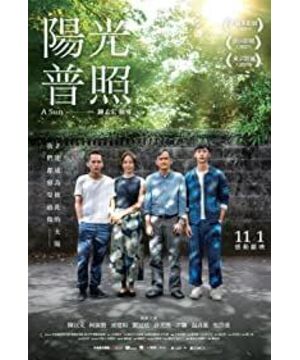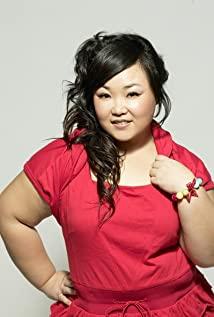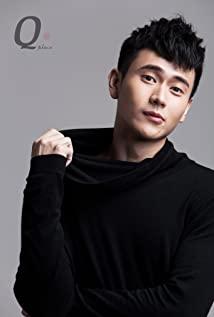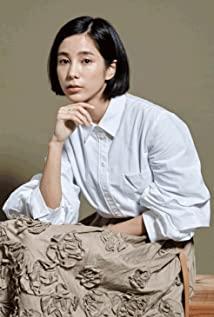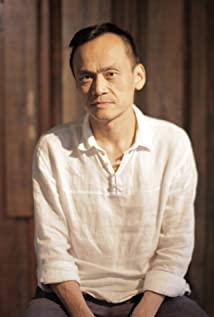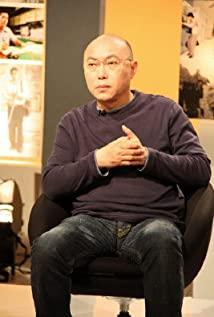More than half a year ago, "Parasite" won the Palme d'Or, and I wrote these words:
In the past 20 years, Korean films have progressed too fast. There are too many good directors, such as Lee Chang-dong, Kim Ki-duk, Bong Joon-ho, and Park Chan-wook, who have created too many good works. Good actors also appeared in batches, Song Kanghao, Choi Minzhi, Xue Gengqiu, Jeon Doyeon... There are countless names.
Talent is of course important, but perhaps not the most important. Movies are art as well as products. This kind of product is too complicated, too special, and constrained by too many conditions. These Korean directors, including Feng Junhao, are lucky that they have suitable soil when they want to grow vegetables.
Of course, our Chinese media, movie fans, and film workers don't have to be selfish at all, and they are jealous when Korean directors win the Palme d'Or. We have no shortage of good directors who have the ability to win the Palme d'Or, from the Mainland, Hong Kong, and Taiwan. Our movie market is enough to make others jealous. But it must be said that the emergence of really good works, the kind of good movies that can make people shout out, is not enough just to rely on the emergence of talents, and it is not enough to rely on the hot market.
These words can be said again now that "Parasite" has also won the Best Picture Oscar.
I always think that many good movies can be made, and they need the right soil.
Of course, I'm not saying that our "movie soil" in China is bad. For many movies, our soil is suitable and fertile. But our soil is somewhat "picky", which is suitable for some movies, but too inappropriate for some movies. Some seeds you want to plant in this soil will not germinate at all.
In short, I can arbitrarily say that we can't make Parasite.
It is not because there is no Feng Junhao, but because of some technical reasons, Feng Junhao is here, and he can only make one "I am not a parasite" at most.
But if we expand the scope to the category of "Chinese movies", I don't think we can't make movies like "Parasite".
There are also Chinese-language films in Taiwan, and there are also directors in Malaysia and Singapore. And the "movie soil" in these places is not the same.
I am very reluctant to admit it. Last year, the best Chinese-language films in my heart were really not made by our mainland directors.
This film is called "Bright Sunshine". It is a film from Taiwan, China and won the grand prize, but we can't mention this award now, so I won't mention it.
Because we can't mention that award, the influence of this film has also been affected. But I think it deserves more attention. Among the Chinese films in 2019, "The Sunshine" is one that deserves to be seen by more people, discussed by more people, and remembered by more people.
Taking the analogy between "The Sunshine" and "Parasite" is actually a clumsy way for me to attract readers' attention, but many of the issues discussed in this film are indeed similar to "Parasite", which will be discussed later.
The director of the film, Zhong Menghong, is familiar to many fans. He has filmed "Parking", "Lost Soul", "The Fourth Picture", and "Good Journey". I like all of them, especially "Good Journey", which is very interesting The road movie is full of humor and absurdity, and there is humanistic care in it.
He is also a producer. For the 17-year-old "Big Buddha Plus", he is a producer and a photographer. By the way, when doing photography, Zhong Menghong was not called Zhong Menghong, he nicknamed himself Nakajima Nagao.
In a word, Zhong Menghong is a very interesting director, he has made quite a few interesting films, and this "The Sunshine" should be the best work of his directing career so far.
The story of "The Sunshine" takes place in a very ordinary family.
Father Awen is a driving school teacher, and mother Qin does makeup and hair for people in a nightclub. The two sons, Ahao, the eldest son, is excellent in academics, while the younger son, Ahe, is not disciplined.
At the beginning of the film, Ah He and his friend Cai Tou got into trouble, cut and wounded people, and entered a juvenile nursery school.
At this time, father Awen's attitude is worth pondering. Compared with his mother, Sister Qin, he did not show too strong emotions. It is rational to say it is nice, and indifferent if it is ugly. In court, he did not plead with the judge, but said: "I used to be incapable of discipline, and I don't think I can control him in the future."
Awen's attitude towards his eldest son Ahao formed a very strong contrast. There is a scene in the film where he goes to school to ask Ah Hao to send tuition fees. His words are full of earnestness. Judging from his behavior, he is like a father in Zhu Ziqing's prose.
After that, the director began to focus on portraying the image of his youngest son, Ah He, the appearance of a pregnant little girlfriend, and a line drawing of his living conditions in the juvenile nursery school. After a few scenes, everyone felt that the role of Ah Hao was The role in the film should be to set off Ah He. When I saw this, I also felt that the core focus of the film might be to show the growth and redemption of Ah He's character.
Whether Ah He has completed growth and redemption is not to be said, but the story development of the film really surprised me.
Before the film was halfway through, the eldest son, Ah Hao, suddenly committed suicide.
Seeing this, I'm sure this movie is very unusual. The design of this plot point is very subtle.
Ah Hao, excellent in character and study, good-looking, good-natured, good at learning, loved by everyone, favored by parents, and a shining presence in school.
How could he suddenly commit suicide? It was a seemingly unprovoked incident.
But through the explanation of the film, if we think about it carefully, we will find that this seems to be an inevitable event again.
Ahao has a "quasi-girlfriend" Xiaozhen who is close to him. He told him a story. He told him that Sima Guang played hide-and-seek with the children. After the end, Sima Guang said that a child was missing. There were a few people, but they still followed Sima Guang to find it. Later, they found a large water tank. Sima Guang raised a stone and threw it at the water tank. Everyone found that there was indeed a child in the water tank, and this child was Sima Guang.
This rather dark story is actually a reflection of Ah Hao's heart.
He knows that he is not as sunny as others seem, and there are shadows in his heart, but under the huge pressure, he can't solve it, and he can't express it.
Ahao wrote in the last text message to Xiaozhen: "I looked around, not only these animals have shadows to hide, including you, my brother, and even Sima Guang, you can find a corner with shadows. But I have none, no water tank, no dark place, just sunshine, 24 hours a day, bright and warm, and the sun is shining.”
Xiaozhen also said: "He seems to give all the good things to others, but not a little to himself."
Some people mentioned that Ahao may be suffering from depression. We will not discuss whether it is or not, but it is clear that Ahao is indeed living in a very stressful family environment and suffering unknown pain.
His brother's refusal to make progress forced him to bear the expectations of the whole family, which left him no time to examine his inner problems, and the habitual neglect of "self" in his character made him feel lost and confused all the time. This confusion may bring deep loneliness. He is imprisoned on a certain set of coordinates and cannot escape.
When we explore the origin of this tragedy, what we can realize is that Ahao's tragedy is closely related to his family. He wants to resist something, but he is powerless and can only choose to leave in the end.
What is he going to resist?
We can understand it as an ethical guideline.
There is an interesting scene in the film. The teacher gave a lecture on Sima Guang's "Xun Jian Shi Kang". Ahao was distracted, and the teacher criticized him and asked him: "Do you not believe what Sima Guang said at all?" Ahao asked: "Teacher, do you believe it? "
Sima Guang is a "model figure" of Confucianism. After his death, he was posthumously titled "Wenzheng" as a top Confucian scholar. What he represents is exactly the Confucian moral system and the set of ethical guidelines that have existed in China for thousands of years.
It can be seen that Ah Hao is skeptical about this.
The next sentence of "Junjunchenchen" is "father, father, son and son." Ahhao's heart is not as obedient as he shows on the outside. .
In other words, Ah Hao's death shattered the last mask of the family and completely disappeared the ethical relationship of "filial piety to the father and son".
For his father, Awen, he has only one son left, and that is Ahe.
Once, he talked about himself to others, saying that he only had one son, Ah Hao, and did not admit the existence of Ah He. Now, he has only one son, so he has to admit the existence of Ah He.
When Ah He left the juvenile nursery and returned to the family, we saw that the relationship between Ah Wen and him began to ease, and the appearance of the newborn seemed to mark the family's rebirth.
In the second half of the film, Ah He's friend Caitou was released from prison and started looking for trouble for Ah He. It was his father, Ah Wen, who killed Caitou and helped Ah He solve the big trouble. This seems to have completed the ultimate family. redemption.
But is it really so?
If the audience is sensitive enough, they must be able to find the absurdity of this matter.
Is what Awen does really out of fatherly love?
In other words, is Awen's "father love" for his son really as "selfless" as he himself said? Is his murder for his son really a "great" act of sacrificing himself to fulfill his son? It's something to play with.
Rather than saying that Awen is defending his son, it is better to say that he is defending his fatherhood. He had to maintain the family so that he could have a son. Whether he likes A He or not, whether he cares about A He or not, these are not important. In other words, what is the difference between A He and A Hao is not important to A Wen.
The important thing is that Awen is a father, Ahe is a son, and a father needs a son.
At the end of the film, Awen and his wife stand on the top of the mountain and have a long conversation, which seems to be a touching declaration of family affection, but in fact there is a lot of hidden information.
Awen said that he saw his son leaving the car wash with Caitou, driving a Bentley, he asked his wife, do you know Bentley? He said, even if I spend my whole life in driving classes, I can't afford it.
At this moment, the hidden theme of the film actually emerged.
The issue of class is actually an eternal issue that several people in this family cannot avoid.
Ahao's good character and study is the only possibility for the family to "rise", and Ahe's not falling into the abyss because of Caitou is a necessary condition for the family to no longer "sink".
In "The Sunshine", there is no such powerful "class contrast portrait" as in "Parasite", but similar reflections and expressions hidden in the whole film are ubiquitous.
Zhong Menghong clearly told us that individual problems may actually be family problems, and family problems may be fundamentally social problems.
Do you have a solution? No solution.
Compared with the anger and accusations that overflowed the screen in "Parasite", "The Sunshine" expresses this kind of "no solution" more peacefully. Zhong Menghong uses rather disguised camera language and Lin Shengxiang's seemingly optimistic and lively soundtrack to express himself. He is quite pessimistic and helpless, but what can he do? Movies don't solve problems, they only allow us to see them, as is the case with "Sunshine" and "Parasite."
What's interesting is that the world presented in "The Sunshine" is quite warm outside of a family that should be warm but a little cold.
The scene where Ah He leaves the juvenile nursery school and the inmates sing "Flower Heart" to him is the only place in the film that touches my tears. This kind of treatment is touching.
Between the cold and the warm, is the real life and the real world.
In addition to the story it tells, the themes it presents, there are still many good things about the movie "The Sunshine", and I can't say enough about the details. The film's shaping of several characters is three-dimensional enough, and the performances of the actors are all online. Needless to say, Chen Yiwen's performance is naturally proficient, and it is a matter of course to win an actor. Regarding young actors, many people's attention is on Xu Guanghan, who has been on fire recently. Of course, he is not bad, but you can actually pay attention to the actor who plays Caitou in the film. He is very powerful. There are not many scenes, but he is quite amazing.
Of course, this film is not perfect either. Personally, I feel that the front and back parts of the film are somewhat out of touch, and the continuity of the story three years ago and three years later is a little weak, which makes the emotional accumulation not particularly successful. It can be said that the first 80 minutes of watching the film alone, "The Sunshine" is Oscar-level, but because of the second half, it can only be the best of the year in Chinese.
There are some lines in the film that I don't like very much. They are too preachy and want to reason too much, so it's easy to be unnatural. Chen Yiwen neutralized some unnaturalness with his acting skills, but it still makes people feel a little awkward.
But anyway, I still like "The Sunshine".
To put it even more regretfully, our mainland directors could not only make "Parasite", but also "Sunshine".
At the end of the writing, I think of Wang Jingchun's speech after winning the Best Actor at the Golden Rooster Awards. Let's borrow it to end:
"I hope the sun shines on Chinese movies, and may all the emotions and love last forever."
View more about A Sun reviews


